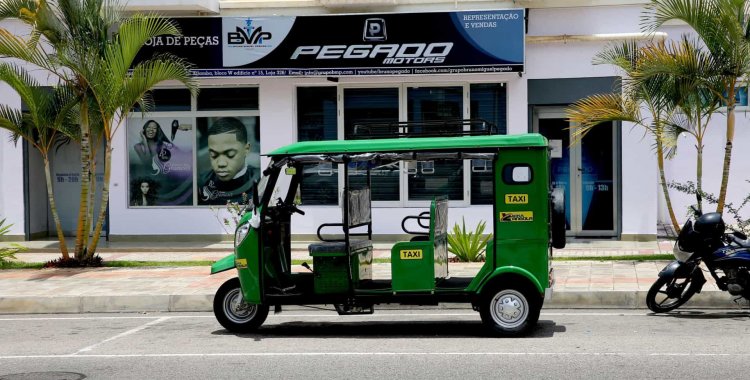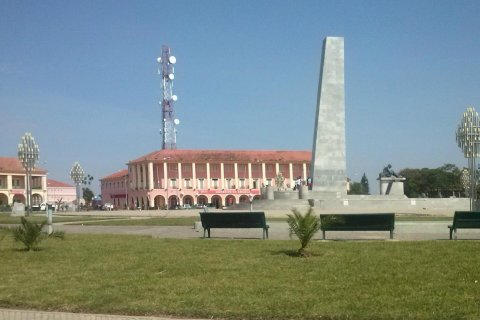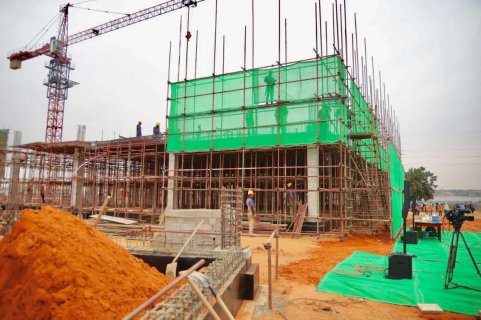Bruno Pegado, the founder of the brand, studied business management, but he is passionate about engines and it was in this industry that he wanted to make his dreams come true, having already developed several models of vehicles, including the Baza Baza.
"I crossed the industry with engines, it couldn't be better," the businessman who created Pegado Motors in 2008 told Lusa.
In association with Chinese partners, it started by producing bicycles, motorcycles and beach cars and, in 2014, wanted to move forward with the production of light passenger cars, a project that was stalled due to lack of funding and led the entrepreneur in search of new paths, who took him to Baza Baza.
The tricycles are assembled in Angola, in a small unit on the outskirts of Luanda, and Bruno Pegado hopes with this project to address two problems: solving the lack of mobility of Angolans, due to insufficient public transport, and contributing to job creation.
These automotive equipment, he explains, were designed to help with mobility, transport of passengers and goods, and were adapted to the Angolan reality with extra reinforcements in terms of suspension, cooling and a 250 cubic centimeter engine to be able to support the weight of eight passengers.
"Our focus is self-employment in Angola", guarantees Bruno Pegado, noting that the product allows flexibility, since the chassis was enlarged and designed to adapt to 12 models.
Thus, Baza Baza can transport up to eight passengers, goods, fresh goods and serve as a mobile store or support for professionals who provide home service, such as air conditioning technicians, mechanics and plumbers, or be converted into mini-ambulances.
"The great advantage is that we can be creative, if they ask us for a certain vehicle, we develop it", he reinforces.
With sales started last year in the Democratic Republic of Congo and Tanzania, and a container ready to leave for Uganda, the businessman hopes to see Baza Baza circulating in Angola next month, and is just waiting for registrations to make the first 'test drives'.
Although they are directed to respond to the demand of African markets - and not only Angolan - Bruno Pegado also believes in the potential of the vehicle for European countries and has been in dialogue with a Portuguese investor.
"We were contacted through social media by a Portuguese citizen who showed great interest in having Baza Baza in the tourist area of the Algarve and also having an assembly line in the Algarve, with the possibility of supplying other European countries", he told Lusa.
"We are working on this opportunity and we believe that in the very months we will have news in this regard", he added.
The businessman, however, does not want to reveal the name of the potential partner in the tourism sector, which could open doors to other markets.
"We know that the Algarve is one of the most touristy areas in Portugal and I believe that much of Europe will be able to walk in a Baza Baza", he suggests.
All the material comes from China and each vehicle takes between four to five hours to be assembled in Angola, in an almost artisanal process.
"We bring everything dismantled and we carry out the final assembly phase here in Angola. Each Baza Baza costs around US$3,500 until it reaches the port of Luanda and, at least, another thousand until it is ready to be delivered", reveals Bruno Pegado, at the factory where has already invested 380 thousand dollars.
The unit employs 12 people and has an assembly capacity of two vehicles per day, but the entrepreneur has more ambitious goals: "We hope, by next year, with sales, that we can grow and make our assembly line increasingly automated, in order to increase our production capacity".
If there is a need to respond to a large order, Bruno Pegado says he is prepared, with the help of Chinese suppliers, but the objective is to produce and export from Angola, where the entrepreneur hopes to gain access to credit that will allow him to increase the capacity of the line. assembly for 40 units.
In Waco Kungo (Cuanza Sul) there is also a land with an industrial permit where it hopes to develop, in the future, an industrial center with an automated line that will allow the production of 500 tricycles per day.
"The partners I have in China value ideas and put them into practice, we here in Africa are complicated", he says, regarding the difficulties he has encountered in obtaining funding.
"One of the factors was being a young Angolan and not having financial strength", he justifies, guaranteeing commitment in the "fight to show the banks and investors" his real capacity and be able to take the next step.
For now, the objective is to reach the end of the year with 500 Baza Baza circulating throughout the country.







